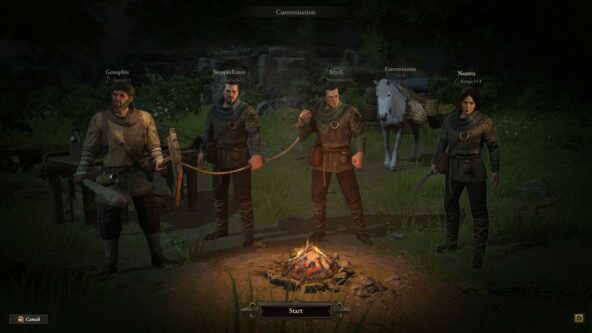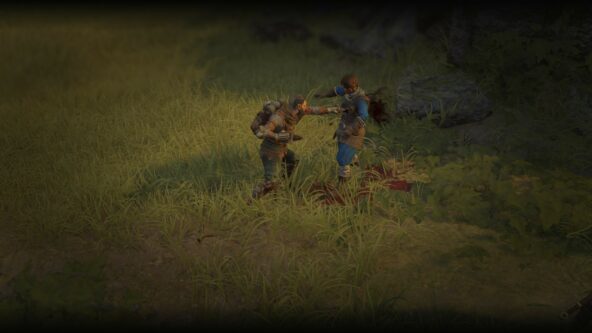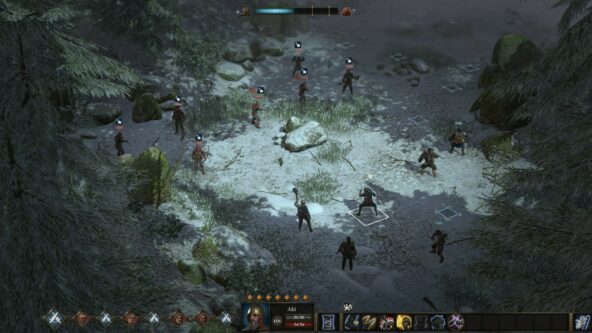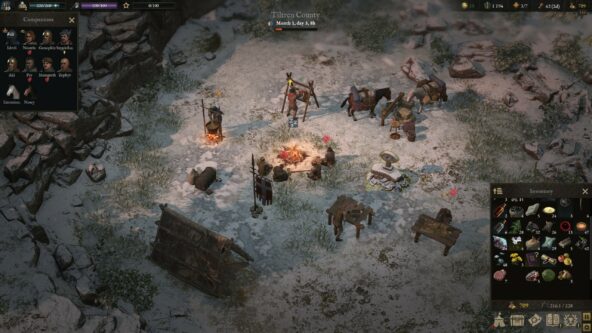Wartales
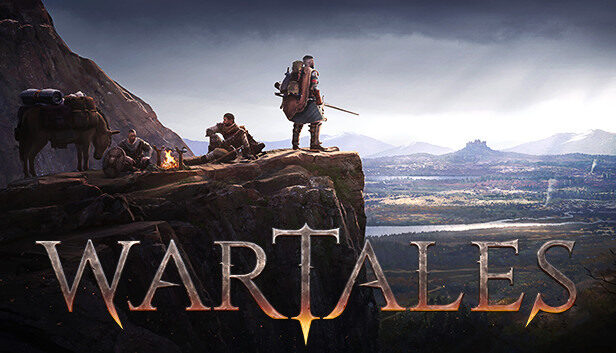
You play as a band of mercenaries making their way across a beautiful isometric overworld; moving from town to town, taking on quests, camping etc while managing resources for fighting and travelling. The battle system is pretty nice - turn based combat on a flexible grid system. Each class of mercenary has sub-classes, a skill tree, levels, attributes, traits & professions (which allow them to do things like tinker or cook, and give them combat bonuses). Line of sight also actually matters; I shot my own rogue in the back with my archer by mistake. And you can rename characters, which is always fun.
Pros
- In combat, instead of it going Ally 1, Ally 2, Enemy 1, Ally 3, it goes "any of your units", "Enemy 1", "any of your units", "Enemy 2" etc, so you get lots of control over focus fire or making the most of where an enemy is at that moment, rather than in some games where you can only delay your character's turn.
- You can customise your units' appearance and name them
- The engagement mechanic is really nice. If you attack a unit, you become engaged with it. This enables backstabbing, and opportunity attacks if one of you leaves. It also ties into other combat abilities.
- Units take more damage if they're surrounded
- Everyone can be inspected
- Sometimes you get finisher "cutscenes" where you see your character finish off an enemy with a combat animation
- Status effects like mud, poison, slow, burning. I had to stop using my fire archer, because anything on fire sets fire to anything it's standing next to. Burning the enemy just meant that everyone was on fire shortly afterwards
- Everything is voice acted
- Your characters unlock traits over time based on what happens in combat
- Each character can have one of 8 professions for crafting and gathering
- Occasionally when resting, small events happen with your companions, like getting sick or someone thinking a new companion doesn't fit in, then you have 3 choices of how to react, with different outcomes, sometimes needing items for special outcomes
- There's a system whereby every new thing you do earns you knowledge (like discovering places, or creating an item for the first time). Knowledge can be spent on perks or crafting recipes
- In addition to knowledge, there are also 4 main paths. Each path has a set of challenges. Completing challenges fills the path progress bar, which unlocks new kinds of perks
- There are old ruins to explore. Fights in these ruins are pitch black, and it matters if your characters are holding torches. Fire also lights up the area and reveals nearby units
Cons
- After 10 hours in the first zone and doing some reading, it looks like the game doesn't change anymore - new regions are just more of the same. Given that's the case, it's kind of entertaining, but way too long and repetitive
- Don't get me to make permanent game-changing decisions about my party before telling me how the mechanics work. How am I supposed to know if minus 1 carrying capacity is a lot, or if 1 happiness when resting matters?
- Lacking in tutorials. Valour points are unexplained. I had no idea when units get healed (at the end of every combat)
- There's a lag between when you use abilities and when they happen. For example, using Encouragement - my warrior shouts, then 3 seconds later my allies gain the effect
- Characters with first aid can't heal themselves
- If you accidentally sell something, you have to buy it back at full price
- You can give ranks to members of your party, like assigning a captain. That's great, but the game doesn't tell you what that does. I had to google the fact that it gives them a new ability to use.
- You can sort the inventory, but you can't filter it - which makes it difficult to see how much food you're carrying
- All the wikis are out of date. None of them mention the Pugilist class
- Although the game appears to be about adding more companions and growing your party... there's literally no upside to doing so. Having more people means more gold expenditure and more food consumption. Battles add more enemies if your party gets larger, and fewer if you don't, which means there's absolutely no point having a larger party; it just makes combat take a lot longer

